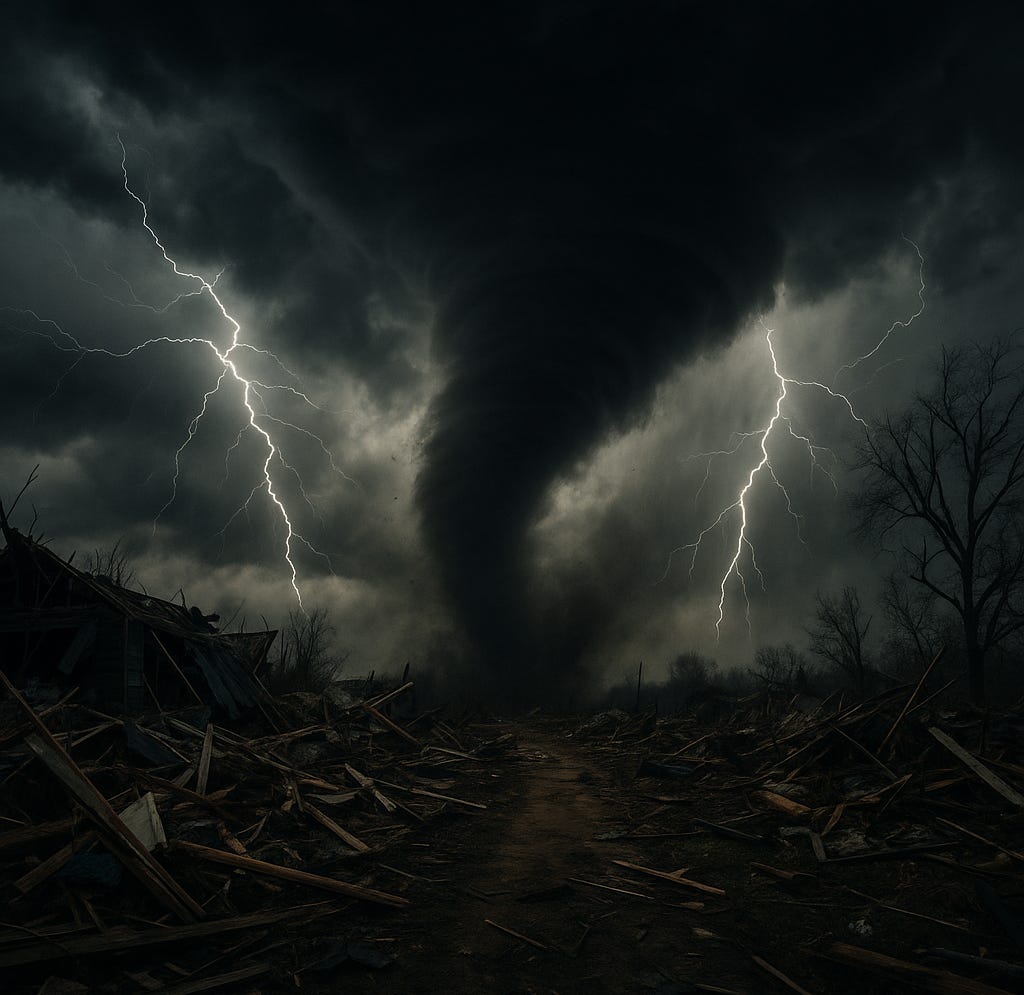Where Is God When Catastrophic Storms Hit?
Is God really in control? Does He actually care about us?
Violent storms swept through parts of the Midwest and South on Friday, spawning deadly tornadoes and winds that claimed 28 lives and damaged or destroyed hundreds of homes.
Whenever tragedies like this occur, it’s natural to ask: “Where was God in all of this?” The implication behind the question is often this: If God is both sovereign and loving, why would He allow such tragedy?
I understand the question. But I believe the answer is surprisingly clear.
Incorrect Answers
One common response is to conclude that God must not be real. When life contradicts what people expect from a loving and powerful God, they question His existence.
Others acknowledge God’s existence but believe He is distant, uninvolved, or indifferent. Some even go so far as to accuse God of being cruel or heartless in the face of natural disasters.
Then there are those who believe strongly in God but miss the mark when interpreting these disasters. They see such events as divine judgment on people who “had it coming.” Though they affirm God’s existence, this perspective is perhaps even more painful and misguided than doubting Him.
Jesus confronted this kind of thinking in Luke 13:1–5. He referenced two tragedies: one in which Pilate slaughtered Galileans and another where a tower in Siloam collapsed, killing 18 people. The public seemed to believe that these victims were especially sinful—that they got what they deserved. But Jesus rejected that idea. Instead, He warned His listeners that they too would perish unless they repented.
So if those aren’t the right answers, what is?
Back to the Beginning
To find a biblical answer, we must go back to the very beginning.
When God completed creation, Genesis 1:31 tells us, “And God saw everything that he had made, and behold, it was very good.” There was no death, no storms, no tragedy—just perfection. Not merely good—very good.
So what changed?
When Adam and Eve sinned, they brought more than spiritual death. In Genesis 3:17–18, God also cursed the ground. Romans 8:18–25 teaches that all of creation suffers under the weight of that curse. It groans, waiting to be set free from its bondage to decay.
Natural disasters are part of that groaning—a broken creation echoing the consequence of human sin. Through their rebellion, Adam and Eve unleashed chaos upon a once-perfect world.
But God did not leave us in this state. He sent His Son, Jesus, to live the life Adam should have lived and to die the death no one else could die. When we trust in Jesus for redemption, we are born again and given spiritual life.
And God promises restoration—not just of His people, but of His creation. One day, He will return the world to its “factory default.” He will not only redeem men and women, boys and girls who are His—He will restore the earth to the glory He intended.
We will dwell with Him forever on a fully renewed Earth.
But until that day… the groaning continues.
The Correct Answer
So, where is God when catastrophe strikes?
He is near—compassionately close to the brokenhearted. (Psalm 34:18)
He is reminding us of sin’s effects—and of His provision through Christ.
He is pointing us forward to the New Heaven and New Earth, where those who know Him will dwell with Him forever in a world made new.
What Can We Do Now?
In the meantime, pray.
Pray for those affected by last Friday’s storms—those who lost loved ones and those who lost everything they owned.
Pray for those responding on the ground—law enforcement, fire and rescue, utility workers. And pray for relief organizations like Samaritan’s Purse and SBC Disaster Relief. Ask God to use them to bring comfort and hope.
If you feel led, make a financial donation to a reputable relief agency. In crisis situations, money is the most helpful gift. These organizations can purchase needed items in bulk and distribute them far more efficiently than we can with donations of goods.
Let us cling to the hope of restoration, live with compassion in the present, and trust that God is not distant—but near, active, and faithful.


